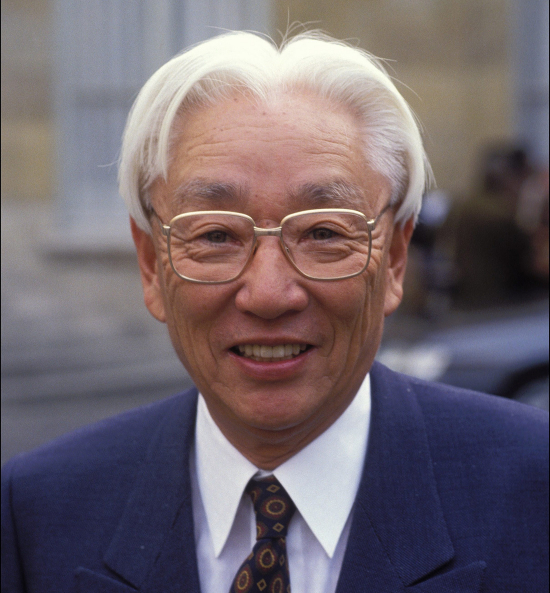System of external motivation of personnel (false management paradigms)
This section demonstrates examples of the unscientific and simplistic approach of the dominant people management paradigms in our society in companies and organizations, society as a whole, based on all kinds of systems of individual external motivation of employees (monetary bonuses, interest on transactions, fines, etc.).
The page material was prepared by the scientific director of the AQT Center
Sergey P. Grigoryev
Free access to articles does not in any way diminish the value of the materials contained in them.
"The sound of the words stimulates the imagination: pay for what you get; get what you pay for; motivate people to give their best for their own benefit. The effect is quite the opposite of what make promises in words. Everyone presents or tries to present themselves in a favorable light for their own survival. The organization as a whole loses."

In companies that use various systems of motivation and ranking of personnel (reward and punishment systems), without understanding the properties of the systems, the basics of variability (statistical thinking), the theory of knowledge, psychology, presented in Edwards Deming's system of deep knowledge , most often, the principle of “punishing the innocent and rewarding the innocent” will work.
Of course, in such cases, the work of the head of the company is greatly simplified - tie the remuneration system to the desired planned indicators, and let them take care of a decent salary or quit, we will find new capable employees. But what happens in practice?
“Management in this case is simply shifting its responsibility to people who cannot influence quality, productivity and offer innovation...
If a company pays commissions, the emphasis is on sales. When she pays a fixed salary, all attention is given to the client.
... now customers are willing to cooperate, although previously they did not want to do anything with this company."
See the commentary to the article about the consequences of piecework wages at the VSMPO-AVISMA enterprise in the open solution: Quality or quantity? Piece work or time work? What instead?
If the company’s employees were on piecework for a long time (payment based on personal results), you yourself, without knowing it, carried out selection by ranking people in the system. This selection was aimed at the survival of those who do not particularly care about the goals of the company, because you motivated people to sell or produce as much as possible for their own material benefit. It was difficult for people with high internal motivation, a desire to satisfy the client, and not to get into his pocket, to survive in an environment of such management. The result was that the best people needed to transform the company left or stayed, and their will was broken by the cruel reality of piecework.
I am grateful to A. A. Batskikh, co-founder and head of a Russian manufacturing company, for the opportunity to present the story he told below:
“While still at school, at the age of 12, we were given an assignment to write an essay about a flower. At that time, I was interested in everything, just not flowers. The grade for this work depended on whether I would be retained in the second year or transferred to the next grade. I made every effort , which I could to write an essay about a flower growing in a pot in my kitchen. As a result, the text was exhausted, only half a page of a school notebook and a grade of “3-”.
Two years later, the class received the assignment to write an essay “About Your Friend.” By that time, I was already a good student, and the grade for this essay could not change my situation. Then, I was friends with my neighbor on the landing and dedicated the essay to him. I didn’t notice how I wrote several pages of my essay. The teacher said that in 10 years of her work she had not read such essays. Of course I got an A.
In the first case, I was motivated from outside, in the second, such motivation was not required."

"People don't just work for money, and if you're trying to motivate people, money isn't the most effective tool."
Below is an eloquent example from Microsoft
“Microsoft Corporation is abandoning the “stack rating” employee rating system and the compensation system based on it (November 12, 2013).
The company said it would no longer rank employees against each other on a scale of one to five. The rating led to the fact that some of the 100 thousand Microsoft employees had to be recognized as lagging behind.
Rating was a key factor in bonuses and promotion decisions. Many current and former Microsoft employees have complained that the ratings system has led to power struggles among executives and unhealthy competition among coworkers.
Microsoft said Tuesday it is moving away from numerical rankings in favor of more frequent and high-quality employee assessments. The changes took effect immediately.
This makes Microsoft the latest in a series of companies to abandon forced employee ratings, a method that was widely copied in the 1980s after the rise in popularity of General Electric, led by Chief Executive Jack Welch." - The Wall Street Journal

"If you can find people whose passion intersects with their work, you won't have to control them. They will manage themselves better than anyone else because their drive will come from within, not from without."
What about the “stars”?!
“A person can be assessed as more or less successful in relation to other people if he maintains this assessment for at least seven consecutive periods of time (which can be equal to seven years).
If a person maintains a relatively high position for more than seven periods in a row, we can confidently say that he is indeed superior to the others on the criterion being compared, regardless of whether the use of this indicator is justified.
The number of developments that an engineer makes in a given time is an example of a metric that does not give a person the opportunity to be proud of his skill.
If this distinction is maintained for more than 20 years, then we can talk about a “star” in the relevant field, if the indicator itself makes sense.
A useful criterion for recognizing outstanding performance is the clear demonstration of year-on-year improvement over seven years in skills, knowledge, and leadership. The opposite criterion, i.e., constant deterioration over seven years, may serve as a signal that such people need help.
This is all just speculation since there are no groups of people who stay in the same job for that long. However, in some cases this period can be shortened, which is natural, for example, for production workers. For them, you can collect data on the number of items produced per week every week. Seven or more consecutive weeks may provide reliable relative indicators."
A state of affairs where employees truly deserve separate rewards or additional attention and assistance can be operationally define using statistical methods. See the explanation in the open solution: Erroneous use of KPIs in the personnel motivation system